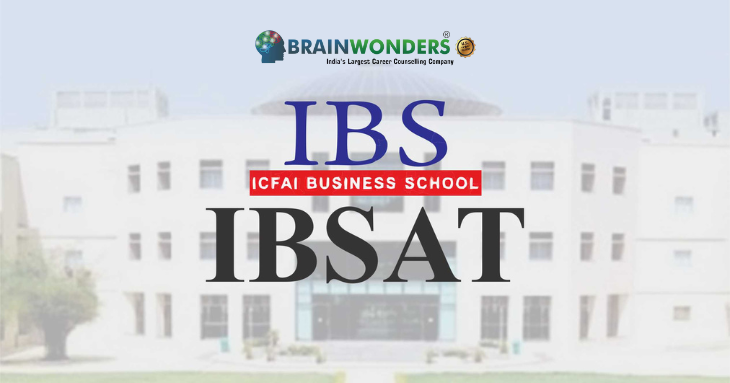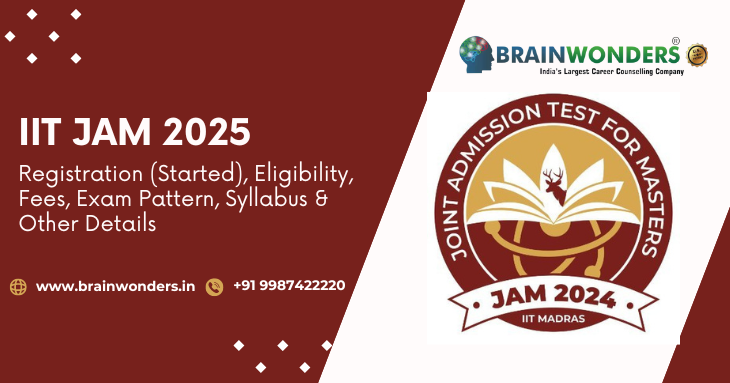

Your Brainwonders result to will help you identify the right exams you need to be ready for!
Bank on your strengths and learning style to ace the exams on your path to your dream career
Blog
18 March,2024 | By Brainwonders

Many students go for government jobs after graduation. If you found yourself in this category, you need to be at least 21 years old and complete your graduation; only you need to be eligible for government exams. So, you will be at the constructive and productive age of giving government exams, or the civil services exam will be in the age range of 21 to 26 years.
Although just a few government exams have a maximum age limit of 32 years, your first 4-to five tries are essential in determining your success. Almost everyone can pass such competitive exams in the first 4-5 tries if they prepare properly.
Government exams are competitive, and you must start the preparation as early as possible. It will assist you in obtaining a high score. In addition, because of the stability and job security, many students appear for government exams that make them capable of going for government jobs after graduation.
There are plenty of job openings in the government sector. The Indian Government coordinates several government competitive exams. After passing the government exams, selected candidates can get many job opportunities in various public sectors. It would be best to ensure that all government exams are available in banking, railways, teaching and civil services. We have mentioned a list of government exams after graduation in this post.
Get the career testing through Brainwonders. It will help you demonstrate your interest areas and help you to choose the right career for you. Since 2011, thousands of students have benefited through Brainwonders career testing; you can also go for it. Click on the link below to know what Satisfied Parents say about Brainwonders Career Testing:
This Blog Includes:
The UPSC exam pattern is divided into the preliminary and the main examination stages. The third is a personality test.
The preliminary stage consists of two papers conducted in one day. Both papers comprise objective-type questions. After qualifying in the preliminary stage, the candidates are filtered for the main exam. The duration is 2 hours. Each wrong answer leads to a negative marking.
The main exam consists of 9 papers conducted over 5 to 7 days.
This pattern consists of descriptive answer-type questions. The duration is 3 hours. All the primary papers except for the language papers A and B are of merit ranking nature. The final stage of the exam is an interview or personality test that is counted as a part of the main examinations for ranking purposes.
Jobs after this exam
Group A:
Group B:
The IES exam is divided into two stages: Preliminary and Mains. The Preliminary Stage has two objective papers for a total of 500 marks. To clear the exam, candidates must clear the overall cutoff and the cutoff of both papers separately. Candidates who qualify for prelims are qualified for the mains exam. It has two descriptive papers of 300 marks each. The final stage is a personality test or personal interview for 200 marks.
Jobs after this exam:
Students who graduated from a finance or accounts background mostly go for several banking exams. You will get enough exposure in the Banking sector.
Exams for banks are objective type consisting of four sections, i.e.,
The railway exams are the best medium for students who wish to get job security. In addition, there are specific posts available in the railway sector that also create job opportunities.
The exam for the recruitment process of railways consists of 4 stages:
CBT 1 consists of mathematics, general intelligence, reasoning, and general awareness for 100 marks. On the other hand, CBT 2 consists of mathematics, general intelligence, and reasoning, general awareness for a total of 120 marks
Defence and Armed Forces Exams recruit candidates in government defence military organizations.
The defense exam consists of the following:
The written exam consists of 4 subjects: Numerical Aptitude, General Awareness, General Intelligence, and reasoning.
SSC (Staff Selection Commission) is a graduate-level examination. It is conducted to recruit staff to several departments, ministries and public sectors organizations of the Government of India.
This exam is conducted in two stages: Tier-1 and Tier-2.
Tier 1 is compulsory for all candidates. It has four sections:
Tier 2 consists of papers 1, 2, and 3; paper 1 is compulsory for all; paper 2 is essential for those candidates who want to apply for Junior Statistical Officer (JSO) in the Ministry of Statistics and Programme Implementation. Paper 3 is essential for candidates who apply for posts of assistant audit officer/ assistant accounts officer.
Visit Page: What is Personality Test | How to Take the Personality Test? – Brainwonders
The IES is structured into the:
The candidate must have attained the age of 21 years and not attained the age of 30 on the first day of January of the year the examination is held.
After cracking the exam, the candidates are placed in the:
Life Insurance Corporation of India holds a national exam to fill the position of Assistant Administrative Officer every year. This exam is divided into two parts: preliminary and main.
The preliminary test is objective, with only three subjects vert 70 points at a time limit of 60 minutes.
The selection procedure includes three steps - National level Examination, interview, and pre-recruitment medical test. The main exam consists of objective and descriptive questions for a total of 325 marks.
Job opportunities after LIC AAO:
All these posts will be related to Life Insurance Corporation.
Get the Best Counselling Support in India With a Click
The teacher Eligibility Test (TET) is conducted every year to determine the eligibility of the candidates for appointments as teachers in government or private schools.
The TET exam usually contains 150 objective-type questions of 15l marks, and the time limit is 2.5 hours.
The name of the TET exam changes to CTET, REET, UPTET, OTET, etc., according to the states holding the exams.
Job opportunities after TET:
UPSC conducts it for placement as a Class-1 officer in the Indian Railway Service of Mechanical Engineering. The exam pattern consists of 2 parts.
Part 1 carries 600 marks, while part 2 carries 200 marks.
Part 1 is divided into three papers, each of 200 marks, i.e., general ability test, physical science, and mathematics.
Part 2 is a personality test.
The exam also includes negative markings.
Job opportunities after SCRA:
Judicial Service exams are commonly entry-level exams for law graduates to become a member of the subordinate judiciary. The exam consists of three stages:
Job opportunities after Judicial Services Exam:
The NABARD exam is given by candidates interested in rural development. To be eligible for this exam, the candidates must be graduates of Grade A and B posts. This exam is divided into two sections, which last for 2 hours, i.e., Reasoning ability, English language, Computer Knowledge, and General Awareness.
NABARD job opportunities include:
Indian Air Force conducts the AFCAT exam to select Class-I Gazetted officers in flying and Ground Duties (Technical and Non-Technical). The exam pattern comprises 100 objective questions with a total aggregate of 300 marks.
Job opportunities after AFCAT:
Department of Telecommunications is responsible for policy, licensing, and coordination matters related to telegraphs, telephones, wireless, and other forms of communication. It consists of the following sections, which comprise a total score of 200 marks:
Job opportunities after DOT:
This exam is conducted for those candidates who want to start their careers as architects. The exam is conducted in online mode and offline mode. It consists of objective, preferential, numerical, and particular types of questions, totaling 200 marks. The questions are related to diagrammatic reasoning, numerical reasoning, verbal reasoning, inductive reasoning, situational judgment, logical reasoning, and abstract reasoning.
After completing this exam, candidates can apply for architectural positions according to their interests.
After appearing for the government exam, you need to prepare the best. So if you are in the last year and willing to appear for the government exam, start preparing for the government exam as it involves a lot of hard work. Don't rush while making career decisions. Some career paths are open to you after cracking the exams. For that, you need proper guidance. Visit Brainwonders if you are confused about several government competitive exams. We will guide you on which competitive exam will work best for you as per your interest. We at Brainwonders help and guide you on which competitive exam platform is best for you and make you fit for government jobs after graduation.
Career Confusion? DMIT has the answers!
Q.1) What are the benefits of getting a government job in India?
Ans: For starters, government employees enjoy high job security and stability. Because the government is never going away, you won't have to worry about your job suddenly disappearing or being downsized. Plus, government jobs often have guaranteed pensions and retirement benefits, giving you extra peace of mind.
Government jobs also provide excellent pay and benefits packages. Salaries are generally competitive compared to those in the private sector, and generous bonuses and perks such as free housing and medical coverage are often available.
Finally, if you're looking for a sense of purpose in your work, a government job can provide it. You'll be helping to serve the public and make a real difference in people's lives. This feeling of impacting society can bring true satisfaction and fulfilment.
Q.2) Are government exams hard to crack?
Ans: When it comes to cracking government exams in India, the answer is a resounding yes - they can be very difficult. The exams are designed to test applicants on their knowledge and skills, which means that many people struggle to achieve the high marks they need to pass. Furthermore, the competition for spots is intense, and there is a lot of pressure to do well. As such, you need to make sure that you put in the effort and have a solid study plan to succeed.
Q.3) Which is the toughest government exam in India?
Ans: UPSC is the toughest government exam in India because the syllabus is vast and covers topics from Indian culture to international relations. Aspiring candidates must have a thorough knowledge of their chosen subjects and a good understanding of current affairs and global events.
Q.4) Government exams after graduation
Ans: After graduation in India, you can appear for various government exams such as UPSC Civil Services, SSC CGL, Banking Exams (IBPS, SBI), State PSCs, and more, depending on your career interests and qualifications.
Q.5) How many exams are there in upsc?
Ans: There are three stages of exams in the UPSC (Union Public Service Commission) examination: Preliminary Examination, Main Examination, and Personality Test (Interview).
Recommended Read:
Your Brainwonders result to will help you identify the right exams you need to be ready for!
,_Syllabus,_Pattern,_Old_Question_Papers.png)

